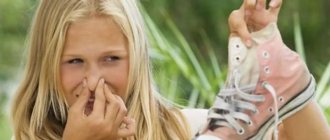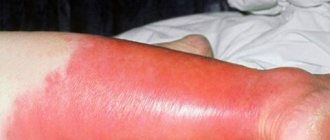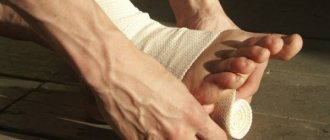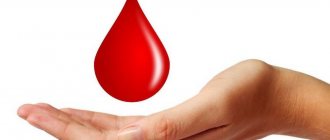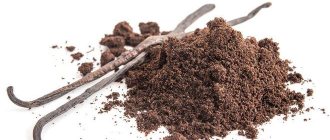Why does excessive sweating of the feet occur?
Why do my feet sweat? It would seem a simple question with a definite answer. Feet sweat from the elevated temperature of the environment where they are located.
Under such conditions, the sweat glands begin to work intensively, and the physiological mechanism of cooling the elevated temperature zone is automatically triggered.
Closed shoes made of synthetic materials cause increased sweating of the feet
Everything would be fine, but a favorable environment for microorganisms to live is created. They develop freely, providing themselves with the most comfortable living space.
The waste products and decomposition of microbes create an unbearable odor emanating from the feet. And this factor causes a lot of problems in everyday life.
What causes sweaty feet?
- lack or insufficient foot hygiene
- closed, uncomfortable shoes made of synthetic materials
- synthetic insoles in shoes
- wearing closed shoes in a warm room for a long time
- hormonal imbalances in the body
- some diseases (diabetes mellitus, cardiovascular diseases, fungus)
- stressful situations, anxiety
- increased physical activity
Increased sweating of the feet is observed even in children and adolescents
Why do feet sweat?
Sweat glands are present on the body of absolutely any healthy person. Sweat is the secretion of these glands, which performs several functions at once. It is thanks to sweating that the body thermoregulates. This system also partially takes over the functions of protecting the body from bacteria, removing toxins and normalizing the acid-base balance.
It is worth noting that sweat glands are divided into two types. Each of them performs its own functions.
Types of sweat glands:
- The entire human body is covered with eccrine sweat glands. They are involved in removing toxins from the body, thermoregulation, and also protect the skin from infections. In some areas of the body the concentration of such elements is especially high. These areas include the feet.
- Apocrine glands are present only in some areas. They are larger in size than eccrine ones, and cover only some areas of the body. The properties of these elements have not yet been studied; it is only known that they release pheromones that determine the individual smell of a person.
Thus, sweating is a completely natural process. Because the feet, palms, head, neck, face and armpits have more glands, they may secrete more secretions than other areas of the body. However, if your feet sweat too much, this is not normal. This condition is called leg hyperhidrosis and requires special attention and identification of the factors causing it. Moreover, the reasons may lie not only in an incorrect lifestyle, but also in serious diseases.
Causes of temporary sweating
If only your feet sweat, and not your whole body, then there is a high probability that the reason lies in external irritants. However, sometimes they not only cause hyperhidrosis, but also harm the body as a whole.
Why do feet sweat in shoes (external factors):
- Severe sweating of the feet can occur when wearing low-quality shoes. Rubber and other synthetic shoes especially contribute to this. For example, this problem is often faced by young people who wear sneakers on their “bare feet” in the warm season;
- Choosing shoes out of season can also lead to this problem. That is, wearing closed shoes, sneakers, etc. in summer;
- In hot weather, sweating feet is also quite natural. However, when wearing open shoes, the feet should not be very wet;
- Wearing synthetic socks and tights can also cause your feet to sweat. After all, such materials do not allow air to circulate fully;
- It is also important to understand that sweating is affected by diet. With excessive consumption of salt, smoked meats, alcohol, as well as hot and spicy foods, the sweat glands will work more actively. However, in this case, not only your feet will sweat a lot;
- When training in the gym, long walking, running and other serious loads, your feet will also sweat. However, this situation is considered normal;
- If you put shoes on wet feet, they will also sweat;
- Failure to comply with hygiene rules leads to sweating;
- Some drugs have a diaphoretic effect. When taking them, sweating of the feet will occur. In order to confirm this fact, it is necessary to check the side effects of the drug.
Such causes do not require treatment. It is enough just to eliminate the factor that contributes to increased sweating, and the problem will go away on its own.
Diseases that cause hyperhidrosis
Unfortunately, sweating feet is not always caused by external factors. After all, this phenomenon can be a symptom of a fairly large list of diseases. Therefore, it cannot be ignored.
It is worth noting that most diseases cause sweating of the entire body. However, sweaty feet are usually the most noticeable. There may also be increased secretion production in places where the sweat glands are most concentrated
Why do my feet sweat a lot (possible diseases):
- To the question of why the feet sweat, the answer may be various pathologies of the endocrine system. The most common problems of this kind are diabetes, psoriasis, thyroid disease, etc.;
- Hormonal imbalances can also contribute to the occurrence of such problems. They can be caused by pregnancy, menopause, adolescence, etc.;
- As the temperature rises, the sweat glands begin to intensively secrete their secretions, performing thermoregulatory functions;
- Colds, viruses and infectious diseases can cause hyperhidrosis of the legs. In this case, the problem can lie both in ordinary flu and in very serious diseases;
- Some serious lung problems are manifested by excessive sweating. For example, hyperhidrosis of the legs and other parts of the body is characteristic of tuberculosis and sarcoidosis;
- Some allergic conditions also cause excessive sweating. For example, such problems include bronchial asthma;
- Alcohol intoxication, food poisoning and other poisoning are also accompanied by increased sweating, including the feet. This is one of the symptoms of intoxication of the body;
- Diseases of the heart and blood vessels also cause sweating. This condition most often occurs in hypertensive patients;
- This problem is also a characteristic symptom of foot fungus;
- Constant stress also leads to sweating. Often feet only sweat when a person is stressed;
- Some non-fungal skin diseases can also cause hyperhidrosis;
- Also, sweating feet is one of the symptoms of diseases associated with the development of tumor processes. At the same time, hyperhidrosis is characteristic of both benign and malignant neoplasms;
- Various pathological diseases of the central nervous system can also cause hyperhidrosis;
- Obese people are most prone to hyperhidrosis.
Most of these diseases in advanced states are very dangerous. And they are best treated in the early stages. Therefore, when such a problem arises, you need to fight it.
Sweaty feet in children and adolescents
Feet sweat not only in adults, but also in small children and teenagers
- The most common factor that causes sweating of feet in children is uncomfortable shoes made of synthetic materials and rubber. It does not allow air to pass through and creates excellent conditions for the development of bacteria and fungus
- Socks and tights made of synthetics cause your feet to sweat
- Due to their age, young children and teenagers are very active. Sports activities and active games contribute to sweating in children
- Increased sweating is caused by taking certain groups of medications, increased psycho-emotional state, hormonal changes
- Failure to follow basic foot hygiene rules can cause increased sweating. These children usually have wet socks and cold extremities.
- Hot weather causes increased sweating
- Foods with spices can also cause sweating
Uncomfortable dress shoes often cause sweating
Triggers for excessive sweating of the feet
It is believed that one trigger or a combination of triggers may increase foot sweating. These include:
- Improper foot care.
- Rarely change socks or tights.
- Using socks or tights made of low-quality synthetic materials.
- Wearing uncomfortable, low-quality shoes that do not have sufficient convection (in simple terms, the shoes “do not breathe”), due to which warm air is not released, increases humidity, which in the cold season can lead to frostbite of the limb, and in the summer - create optimal conditions for the proliferation of pathogenic flora (bacteria, fungi).
- Lack of care or improper care of shoes.
- Professional activities that require prolonged stress on the legs.
- Some pathologies (endocrine, cardiovascular, nervous systems, flat feet, infectious diseases, neurocirculatory dystonia, etc.).
- Local factors (presence of macerations on the feet, cracks, peeling, softening and swelling of individual areas of the skin, changes in its acidity).
- Fungal infections of the nails and skin of the feet.
Separately, there is physiological generalized (whole body) or local (palms and feet) hyperhidrosis, which can be observed during stress, overexertion, physical or emotional experiences. It is short-term and passes along with the external stimulus that caused such a reaction.
Also, general hyperhidrosis or hyperhidrosis of certain areas may be due to a genetic predisposition.
Sometimes excessive sweating indicates serious diseases that are inherited (for example, Riley-Day syndrome, Beech syndrome, Lucy Frey syndrome, etc.)
Sweaty feet in women
Female hyperhidrosis occurs for a number of reasons. We list the most common causes of female sweating of the feet.
- Fashionable shoe models, which are difficult for young girls to refuse, often have an uncomfortable last that impedes air exchange and restricts blood circulation. Artificial leather and insoles, rubber material and shoe soles cause excessive sweating
- Synthetic tights, socks and knee socks cause your feet to sweat and your legs to become damp and cold.
- Women often wear closed, warm shoes indoors for a long time. As a result, the feet sweat and discomfort is felt in the form of increased humidity and cooling of the feet.
Health-related causes of sweating feet in women:
- hereditary predisposition
- hormonal disorders,
- infectious diseases
- presence of a malignant tumor
- flat feet
- nervous disorders
- skin diseases
- excessive dieting
Daily foot hygiene and changing socks will help reduce sweaty feet
Sweaty feet: a whole disease or symptom
It’s rare that a doctor you go to with sweaty feet won’t ask you to undergo an examination. Let it be the bare minimum, but still pass. There is no need to be afraid of such a prescription: on the contrary, be glad that you have found a doctor who wants to find out the root cause of sweating. And this is truly a pathology. It's one thing if your feet sweat after an intense workout or in extreme heat, and quite another if you have to deal with this negative condition all the time.
If your feet are sweaty almost always, for no apparent reason, this is not normal. Even if a person washes twice a day and takes care of his skin in every possible way, sweating practically does not decrease. In fact, it's not sweat that's to blame. It has virtually no smell. The secretions from the sweat glands are neutral, but when they get on the skin, fungi and bacteria get into it, and this already leads to a repulsive odor. Accordingly, the more sweat, the more pronounced this smell will be.
There are many reasons for sweaty feet. Quite often, the person himself forces the skin structures to produce so much sweat. That is, in such a situation we are not talking about serious internal violations. But high sweating can be provoked by infections, tumors, diseases of the central nervous system, and vegetative-vascular dystonia, which is notorious for many.
Sweaty feet in men
Excessive sweating of the feet is a problem for many men. It happens that the stronger sex finds itself in piquant situations due to sweating and strong foot odor.
It is believed that increased hyperhidrosis occurs in almost every man and this is inevitable for the male half. Is it so?
It often happens that daily foot washing with soap, air foot baths and a clean pair of socks eliminates the problem of sweating.
What affects hyperhidrosis of male legs?
- insufficient foot hygiene
- narrow, uncomfortable shoes made of synthetic materials
- active sports activities
- some illnesses and stressful situations
IMPORTANT: If you are concerned about excessive sweating of your feet, and daily foot hygiene, changing shoes and socks does not help eliminate this ailment, you should consult a doctor and have your health examined.
What causes sweaty feet
Before looking for an effective remedy for sweaty feet, clearly evaluate whether you yourself are to blame for excessive sweating? Check all the items in the following list.
Sweaty feet are caused by:
- Tight, narrow, uncomfortable shoes, as well as shoes of poor quality;
- Synthetic socks;
- Socks that are too warm (not for this season);
- Stress and anxiety;
- Insufficient foot hygiene;
- Large load on the lower limbs (for example, this happens among representatives of “standing” professions);
- Endocrine pathologies;
- Infectious diseases;
- Diseases of the central nervous system;
- Tumors in the body (of different nature).
Hypochondriacs, of course, will immediately begin to look for the most terrible diseases in themselves, but dermatologists assure that in most cases, sweating of the feet is provoked by a certain oversight of the person himself. He does not take enough care of the skin of his feet, is careless when choosing shoes, etc.
This state of affairs, of course, cannot be tolerated. The disease will progress, and very often it will be accompanied by fungal infection of tissues. Oddly enough, even the patient’s nervous system is under threat, since nervous breakdowns and constant stress are frequent companions of hyperhidrosis.
Pharmacy remedies for sweaty feet
Pharmacies provide a wide range of products that reduce foot sweating. These medicines have a disinfecting, drying and deodorizing effect. Let's look at the most popular pharmaceutical remedies for sweating.
Teymurova paste - a pharmaceutical preparation for sweating feet
Teymur paste contains boric acid, borax, zinc oxide, salicylic acid, methenamine, lead acetate, formaldehyde, peppermint oil. This is a well-known drug used to reduce sweating of the feet. Teymur paste has antibacterial, antifungal, drying and cooling effects.
Clean skin of the interdigital space is coated with paste several times a day. The course of treatment for foot hyperhidrosis is usually 15-30 days.
Formagel is a colorless gel containing 3.7% formaldehyde. The product reduces the activity of sweat glands. The gel is applied to clean skin of the feet and between the toes. After half an hour, the skin is washed with water and thoroughly dried with a towel. The effect of the drug is designed for 10-12 days. Then the procedure is repeated.
Burnt alum (potassium alum) is a natural antimicrobial, anti-inflammatory, drying, enveloping and hemostatic agent.
The drug eliminates sweating and relieves itching of the skin. Used as a powder. Sprinkle clean skin of problem areas with alum as needed.
Tablets for hyperhidrosis are used as prescribed by a doctor.
Review of effective anti-sweat products
Heavy sweating in most cases occurs due to hot weather or excitement. Excessive sweating is called the general term hyperhidrosis, when we are talking about unpleasant foot odor - bromidosis.
When choosing anti-sweat products, you need to focus on the sensitivity of your own skin and its tendency to allergic reactions. For regular use, it is best to buy soft hygiene products that contain natural ingredients. Chemical products can darken or, on the contrary, whiten the armpit area.
Anti-sweating medications have a cumulative effect, so they are suitable for people who want to get rid of the problem for a long time.
Pasta Teymurova
Paste for external use “Teymurov’s Paste”
Teymurov's paste is a medicinal product that has an antibacterial, drying and deodorizing effect. The drug should not be used in the presence of cracks or deep wounds. This medication blocks unpleasant odor and profuse sweating. It can be used to treat the armpits, legs, and arms.
The product should be applied 1-2 times a day to completely cleansed skin that has dried naturally, that is, without using a towel. Within 4-5 days a pronounced effect will appear. For acute or chronic diseases, the course of treatment will take 7-15 days.
Due to improper, excessive use, adverse reactions may occur:
- rash;
- irritation;
- peeling;
- convulsions (in rare cases).
Cost of the drug: about 100 rubles. Sold in pharmacies and online stores.
Pasta Lassara
"Lassara Pasta"
Lassara paste is a universal medicine that helps get rid of odor and prevents you from sweating. The product contains 2 active ingredients: salicylic acid and zinc. Both substances have a pronounced antiseptic and antibacterial effect. Lassara paste is most often used to treat acne, pimples and other skin defects. It can be used on areas prone to excessive sweating, even in the presence of wounds and ulcers. The paste also contains Vaseline, a substance that softens and smoothes the skin.
Instructions for use: the product should be applied in a thin layer 1-2 times a day. If necessary, the number of applications can be increased to 3-4 times a day. The medicine is not recommended for people with dry and overly sensitive skin.
Salicylic-zinc ointment is exactly the same product, only produced by other manufacturers. The preparation may also not contain petroleum jelly, which is why it will ungodly dry out the epidermis.
Cost of Lassara paste: from 50 to 140 rubles. You can buy it in pharmacies.
Formidron
Solution "Formidron"
An antiseptic agent available in the form of a solution. Formidron is used not only to treat feet and armpits, but also to clean shoes from pathogenic microorganisms. The product helps eliminate unpleasant odor and significantly reduce sweating. The medicine is designed specifically for the treatment of hyperhidrosis at all stages of development. Contains formaldehyde, water, cologne and ethyl alcohol. If used incorrectly, the solution can severely dry out the skin.
The drug cannot be used immediately after shaving; you need to wait at least a day. The solution can be used a maximum of 2 times a day (in case of severe sweating). The medicine should be applied between the fingers and also applied to the armpits. After the first use, increased sweating will disappear for a period of 2 to 14 days. Formidron is a low-toxic drug, so you should consult a dermatologist before using it.
Urotropin
Solution "Urotropin"
Hexamine is a high-quality antiseptic that is similar in action to Formidron. When exposed to an acidic-humid environment, the product forms formaldehyde, a substance that has a powerful antibacterial effect. The drug is available in the form of tablets, ampoules and solution. Tablets can be taken only after medical consultation.
For the armpit area you need a 5% solution (ampoules), and for the legs 40% is suitable. For your own convenience, the product should be applied to clean cloths or napkins. Use no more than 3 times a week. Course of treatment: 2-3 weeks.
Cost of the drug: from 50 to 200 rubles, depending on the form of release. You can buy it in pharmacies.
Powder Galmanin
Powder "Galmanin"
The powder helps eliminate excessive sweating without causing irritation or dryness. It can be applied to the legs and armpits. The product is also used to treat shoes. Galmanin powder has a pronounced antiseptic effect; it gently dries the epidermis without causing irritation. This is the best option for people with hypersensitive skin.
In order to get rid of increased sweating, you need to apply the powder 1-2 times a day. It is highly recommended to pour the product into your shoes and leave it overnight. This way you can get rid of sweaty feet. The course of treatment lasts about 14 days. If used incorrectly or in excess, the drug may cause a rash.
Cost: from 50 to 120 rubles. You can buy it in pharmacies.
Dry Dry
Deodorant "Dry Dry"
Dry Dry is a company that produces quality anti-sweat products. Particularly popular is the deodorant from this company, which can eliminate sweating for 48 hours. All Dry Dry products contain aluminum hydrochloride, a substance that tightens pores and normalizes the functioning of sweat glands. Many products also contain alcohol, which acts as a solvent, and flavoring. Many customers consider Dry Dry deodorant to be the best in its category. The product really helps fight sweating, but it is not suitable for every girl. The product can cause severe allergies due to the alcohol and chemical fragrances in the composition, so it must be used carefully.
Apply deodorant no more than 2 times a day to cleansed skin. Before putting on clothes, allow the product to dry a little (1-2 minutes). Otherwise, wet or white spots will appear.
Products from the Dry Dry company cost from 300 rubles. The average price of a deodorant is 500 rubles. You can purchase the products in pharmacies and online stores. → Review of Dry Dry
Odorex
Odorex Extra Dry
Odorex Extra Dry is produced in Holland. The deodorant is available in 50 ml glass packaging. Despite the small volume, the product lasts for 5-6 months of use. Odorex Extra Dry has a pronounced antiseptic and antimicrobial effect. Apply to the armpits and legs. The product is not suitable for women with sensitive skin as it contains alcohol.
The product should be applied to a napkin or a clean cloth. To treat the armpit area you will need literally a few drops. Deodorant should only be applied to clean skin.
Product cost: from 100 to 500 rubles (depending on the place of purchase). This product is not sold in the Russian Federation, so it must be ordered online.
5 days
Pharmacy remedy for sweat and odor “5 days”
5 days (5d) is a pharmaceutical product from the company Galenopharm. The drug is available in the form of powder and ointment. The powder can be used for foot hygiene and shoe treatment. The name of the drug in this case speaks for itself. The manufacturer promises that in 5 days a person will completely get rid of excessive sweating and unpleasant odor. The ointment and powder have a powerful antiseptic effect due to the zinc oxide in the composition. Also, both products contain glycine. The ointment contains menthol, which has a cooling and soothing effect.
The powder should be applied as follows:
- sprinkle 1 sachet into your shoes before leaving home (course of treatment: 5 days);
- treat the feet, especially the areas between the toes (course of treatment: from 3 to 5 days).
The ointment is applied no more than 2 times a day. It pleasantly cools, relieves fatigue and eliminates unpleasant odors. The course of treatment takes from 5 to 14 days. Protection against sweating lasts for 1-2 months.
The cost of the powder: about 100-120 rubles, the price of the ointment – 150-200 rubles. You can buy it in pharmacies.
Sweat stone
Mineral against sweat and odor
Anti-Sweat Stone is a mineral that helps protect the skin from odor and pathogens. It is recommended to purchase not the stone itself, but products containing it. For example: natural deodorant “Crystal of Freshness”, which can be purchased in natural cosmetics stores. The stone itself that reduces sweating is called alunite. The mineral dissolves in water and is odorless. The easiest way to purchase a stone is through the Internet.
How to use? The mineral can be dissolved in water and used as a solution. There is also nothing special about using deodorant with alunite: it should be applied to clean skin and left until completely dry for 1-2 minutes. Natural remedies are the best solution for daily use. They do not injure the skin and do not cause allergies.
Cost of an anti-sweat stone: from 200 rubles. Deodorants containing it have different prices.
→ Reviews of products for excessive sweating on our project
Zinc ointment for sweaty feet
Ointments and pastes based on zinc oxide are time-tested pharmaceutical preparations that have proven their effectiveness in the fight against excessive sweating.
Zinc oxide is used to prepare ointments, pastes, mash, and liniments. The drug has a disinfecting and drying effect.
Zinc ointment is a time-tested remedy for foot hyperhidrosis
Zinc ointment 10% contains zinc oxide and medical petroleum jelly. The drug has an antiseptic, astringent, adsorbent and drying effect. The ointment is applied to clean skin prone to excessive sweating 2-3 times a day.
Salicylic-zinc paste or Lassara paste contains zinc oxide, salicylic acid, starch, petroleum jelly. Lubricate the interdigital spaces with the paste, applying the drug to clean areas of the skin.
Lassara paste is used for sweaty feet, as an old and proven remedy that dries the skin, relieves inflammation and irritation of the skin. The drug creates a protective barrier from external factors, adsorbs excess moisture and allows the skin to remain dry for a long time.
Pharmacy drugs
Treatment of sweating feet is successfully carried out using proven professional means. Their main advantages are ease of use and efficiency. The list of the most popular and well-known drugs looks something like this:
- Formagel;
- Borozin;
- Urotropin;
- Boric acid.
Below we will look at all these tools in detail.
Formagel
The external agent Formagel shows good results. It contains formaldehyde. This colorless gel creates a thin protective film on the surface of the skin. 30 minutes after application, the gel is washed off with water. Manufacturers guarantee that a one-time use will last for 1-3 weeks.
Borozin
Another specialized remedy for sweating feet is Borozin. The drug is produced in the form of a powder, which has a disinfectant, anti-inflammatory and deodorizing effect. Borozin powder is poured directly into shoes.
One of the oldest and most proven remedies is called Teymur's paste. The ointment is applied to the problem area 2 times a day. It is important to take into account that the drug has a special texture; it is not absorbed into the skin and can leave marks on clothes and bedding.
Urotropin
Often, medications are used to treat hyperhidrosis, the direct purpose of which is not related to sweat production. For example, the drug Urotropin has enjoyed considerable success. Its initial use is associated with the genitourinary system. The drug has an antiseptic bactericidal effect.
In order to treat hyperhidrosis, you will need Hexamine in the form of a powder or ready-made liquid. There are also tablets, but they will not be convenient to work with. To treat sweaty feet, take a ready-made 40% solution of Hexamine. Before the procedure, wash your feet thoroughly with detergent. Then soak a gauze or cotton swab in Hexamine and treat the problem area with it. Don't forget the areas between your fingers.
After the procedure, put on clean cotton socks and go to bed. In the morning, wash off any remaining Hexamine with water. In some cases, it is allowed to dilute the drug with water. The course of treatment with methenamine takes from 15 to 30 days. One-time procedures do not give results.
If in your case hyperhidrosis is accompanied by a fungus, then before treatment with Hexamine you need to do antifungal baths. For erosions and cracks on the feet, it is necessary to take baths with potassium permanganate 3-4 days before the procedure with the drug. As a rule, 1 ampoule of Hexamine is enough to treat both legs.
Boric acid
One of the most affordable pharmaceutical remedies for sweating feet is boric acid. The powder is used in its pure form, without making any solutions or baths. You will need to pour a few sachets of boric acid into a plastic bowl. Then trample on the powder with clean, dry feet.
Make sure the product penetrates into the gaps between your fingers. After this, put cotton socks directly on your feet with any remaining boric acid. It is recommended to do the procedure before going to bed so that in the morning you can remove your socks and rinse your feet from the medicine. For a lasting effect for six months, you will need to do up to 15 regular sessions.
Other drugs
As for classic antiperspirants, which contain talc and aluminum particles, they are ineffective against sweaty feet. Everything is explained by the thick skin on this part of the body, so the active substances of antiperspirants simply do not reach their destination.
The modern pharmaceutical market offers a wide selection of drugs that are designed to combat leg hyperhidrosis, based on natural herbal ingredients, for example, Bellaid and Bellaspon. As for serious drugs that inhibit the functioning of the sweat glands, sweating of the feet can be treated with their help only if there are clear indications and after consultation with a doctor. You cannot self-prescribe anticholinergic drugs.
Home remedies for sweaty feet
Daily foot hygiene will help your feet look well-groomed and overcome excessive sweating. At home, you can effectively and affordably take care of your feet without resorting to the services of expensive beauty salons.
Foot baths, powders, pastes - all of these products are acceptable and will not take up much time in your daily foot care. In addition, these procedures are not only pleasant, but also help reduce sweating of the feet.
Foot baths are an effective way to reduce sweaty feet.
Foot baths with potassium permanganate
Pharmaceutical potassium permanganate dries the skin of the feet and has an antiseptic effect.
- Dissolve several crystals of potassium permanganate in warm water until they turn light pink.
- Soak your feet in a solution of potassium permanganate for 20 minutes
- Wipe your feet dry
Oak bark baths
Oak bark contains a tannin - tannin. The natural component has a bactericidal and astringent effect. Therefore, baths with oak bark will not only heal small cracks on the feet, but will also significantly reduce foot sweating.
Oak bark tannin will help eliminate excessive sweating of the feet
- Pour 200 g of oak bark into a liter of boiling water and cook over low heat for 20 minutes. This amount of decoction is enough for four procedures.
- Mix a glass of oak decoction with a liter of warm water
- Soak your feet in the resulting solution for 20 minutes.
Unused concentrated oak bark solution is stored in the refrigerator. Foot baths should be used daily for 10-14 days.
Oak bark powder
Pour finely crushed oak bark into socks. You can use oak bark powder to treat the spaces between your toes. This product perfectly absorbs sweat and neutralizes its odor.
Baths with soda, salt and iodine tincture
Foot baths with this composition are an excellent prevention against fungal diseases; the composition of the solution has an antiseptic and drying effect.
Dissolve a tablespoon of table salt and soda in a liter of hot water. Add 5-7 drops of an alcohol solution of 5% iodine. Soak your feet until the water cools completely.
An infusion of sage herb is used to reduce sweating in the form of foot baths and when taken orally.
Sage baths
Sage leaf has disinfectant and astringent properties. Herbal components affect hormonal levels and normalize sweating. In addition, foot baths with sage soften the skin and eliminate calluses.
- Steam 5 tablespoons of pharmaceutical sage with a liter of boiling water and keep on low heat for 15 minutes.
- Keep your feet in the warm infusion for 20 minutes.
To enhance the effect of reducing sweating, it is possible to combine the use of sage decoction internally and in the form of foot baths
For internal use: pour a tablespoon of sage into a glass of boiling water and leave for 15 minutes. Take 1 tablespoon three times a day.
You can make your own foot deodorant at home
Homemade deodorant recipe with rosemary, thyme and apple cider vinegar
Compound:
- thyme herb - 1 tablespoon
- rosemary herb - 1 tablespoon
- apple cider vinegar - 0.5 cups
- water - 1 glass
Preparation
- Steam thyme and rosemary with boiling water and cook over low heat for 15 minutes
- Once cooled, strain and add apple cider vinegar.
Place the solution in a spray bottle or simply moisten a cotton swab and treat areas of increased sweating several times a day.
Tea tree oil will effectively reduce foot sweating and neutralize sweat odor
Homemade deodorant with tea tree
Tea tree essential oil has long been famous for its bactericidal and antifungal properties. In addition, the natural elixir normalizes sweating and eliminates unpleasant foot odor.
Compound:
- tea tree oil - 10 drops
- water - 0.5 cups
Preparation
- Add 10 drops of tea tree to 100 ml of purified water
- Pour into a spray bottle
A paste of lemon juice and soda dries the skin and eliminates sweat odor
Lemon juice and baking soda paste
Lemon juice and sodium bicarbonate are the perfect combination of two ingredients. They not only reduce sweat production, but also have an antiseptic effect and neutralize the unpleasant odor of sweat.
Compound:
- lemon - 1 pc.
- baking soda - as much as needed
Preparation and use
- Squeeze the juice and lemon and mix with baking soda to obtain a paste mixture.
- Apply the resulting paste to the spaces between your toes.
- After 15 minutes, rinse with cool water and wipe your feet dry.
Dry foot deodorant can be made from cornstarch and baking soda.
Cornstarch and baking soda dusting
A successful combination of starch and soda will adsorb sweat and remove unpleasant odors. Feet treated with this powder will remain dry for a long time, without spreading an unwanted aroma.
Compound:
- corn starch - 1 tablespoon
- soda - 1 teaspoon
Preparation and use
- Mix baking soda with cornstarch in the given proportion
- Use the resulting dry deodorant as a powder for your feet and toes.
You can get rid of excessive sweating of the feet using cosmetics and home remedies.
Treatment
Many people's feet sweat and smell, which embarrasses a person, creates significant psychological discomfort, and limits his activities. Therefore, at the first manifestations of hyperhidrosis, you need to consult a doctor to find the cause and find out how to get rid of sweaty feet and the unpleasant odor that comes from them.
Your feet may smell sharp and unpleasant. You can eradicate the problem by adhering to certain rules. They require some changes in the patient's lifestyle. To prevent your feet from sweating and smelling, you need to:
- adhere to the rules of a balanced diet. The smell of sweat is directly related to what a person eats. The more harmful it is, the more intense the smell. Therefore, it is recommended to eat foods of plant origin;
- provide your feet with thorough care. This is an effective method to remove unpleasant odor. Feet should be thoroughly washed with soap and water and wiped dry after washing. It is necessary to do a pedicure to prevent bacterial growth;
- change socks, tights, stockings every day. After wearing your shoes for a day, you need to dry them completely. This is an effective way to combat foot odor.
If, despite following these rules, the problem does not disappear, and your feet sweat terribly, you need to contact a specialist who will tell you how to treat hyperhidrosis.
Treatment with drugs
You can cure sweating of the lower extremities with the help of medications that can be purchased at any pharmacy. The most popular and effective remedies against sweating feet and unpleasant odor include:
- antifungal foot products in the form of an ointment against sweating feet. Among their wide variety, Borzin can be distinguished. Reviews indicate that it has the effect of a deodorant for feet, fights foot fungus and neutralizes sweating;
- Teymurov ointment. When your feet sweat, you can use this remedy. Anti-sweating medicine effectively fights hyperhidrosis. The ointment treats sweating of the armpits, feet and palms;
- sprays containing essential oils. They are designed to remove foul odors from shoes and feet. The oils in its composition effectively help against sweaty feet;
- medicine Formidron. It is used to prevent feet from sweating and emitting an unpleasant odor. The product contains formaldehyde, which is a potent antiseptic. It is good for sweating and foot odor. Completely capable of destroying harmful bacteria. It also has the advantage of creating special conditions under which bacteria cannot reproduce.
Hardware treatment
If your feet sweat a lot and emit an unpleasant odor that cannot be treated with sprays and other similar means, then hardware therapy is added to the treatment.
- Iontophoresis is one of the most popular methods of treating the disease. To combat sweating and foot odor, the force of galvanic current on the feet is used. The legs are lowered into a bath of water to which electrodes are connected. During the procedure, a current passes through the water in which the feet are located. This method allows you to eliminate the problem of sweating for 9 months. After the specified period has passed, the procedure is repeated.
- Another commonly used method for conditions where feet are sweaty and smelly is laser treatment. With the help of a directed beam, the cells of the sweat glands are destroyed. To eliminate sweating, a microscopic incision is made in the problem area, into which an ultra-thin light conductor is inserted. There are no scars or bruises left after the procedure. The laser does not burn tissue, but stops cells that cause unpleasant odor and sweating, which subsequently do not regenerate, as a result of which you can get rid of the problem for a long time.
Contraindications for this procedure for foot sweat:
- infectious diseases;
- pregnancy;
- fresh scratches or damage to the area of effect;
- various types of tumors.
For unpleasant foot odor, hardware therapy is very effective. The effectiveness of these methods is high, the pain is low. No side effects are observed.
Treatment with injections
If your feet sweat a lot and have an unpleasant smell, you can try injection therapy. Botulinum toxin is a substance injected under the skin that blocks neurotransmitters that transmit impulses to the sweat glands from the nerve fiber. Botulinum toxins are injected with a thin needle into the problem area. After the injection, excessive sweat production stops, as the sweat glands become unable to perform their function.
After a certain time, nerve impulses begin to function again as new synapses grow. This is why after 3-4 months the feet begin to sweat again and emit an unpleasant odor.
For reference. There is also a group of people whose feet begin to sweat and smell unpleasant, but whose body is resistant to the effects of botulinum toxin. The injection method is not suitable for them.
Treating hyperhidrosis at home
Sweaty feet - how to deal with it? There is a lot of information on how to deal with sweating and unpleasant foot odor at home. You can use the following tools:
- solution of sage and nettle. Mix the ingredients in equal quantities and add hot water (proportions – 1:2). Helps against sweat and foot odor. Use as a base for foot baths;
- baths based on oak bark. Pour 0.5 liters of water into an enamel pan and add 3 tablespoons of oak bark. Bring to a boil and reduce heat. Boil for 20 minutes. Then leave to brew (at least 2 hours), then strain through cheesecloth. Use in a 1 to 1 ratio with water for hot baths. The course of treatment is 10 days. Each session should last at least 15 minutes. It is also recommended to wipe the inside of the shoes with the resulting decoction;
- decoction based on viburnum bark. This product effectively eliminates sweating and unpleasant foot odor. To prepare the composition, you need to take 1 glass of water per 10 g of bark. Boil the bark for 2 hours, then let the broth cool. Use as a base for foot baths;
- chamomile decoction. Severe foot sweating and unpleasant odor can be eliminated with this simple remedy. 8 chamomile flowers need to be brewed in 2 liters of boiling water. Let it sit for an hour. Dissolve 2 tablespoons of soda in the broth. Use the resulting solution for regular rubbing of the feet;
- foot baths with boric acid. Take a bowl of warm water and add a few bags of boric acid crystals to it. Lower your feet into the basin and walk along its bottom. Afterwards, put on cotton socks and give your feet a rest. Just 10 such procedures will help get rid of hyperhidrosis for a long time;
- oat-based lotions. Add 4-5 tablespoons of oats to a liter of water. Let the mixture simmer for an hour. Then cool naturally. Use as a base for foot baths or as lotions.
Feet may sweat and smell unpleasant, but this does not mean that this problem cannot be dealt with. You should choose an effective method and get rid of it.
How to get rid of sweaty feet at home: tips and reviews
It is possible to reduce excessive foot sweating at home. This is evidenced by numerous user reviews on the Internet.
What should you do to prevent your feet from sweating?
- Wash your feet twice a day every day. Dry your feet with a soft towel, remember to thoroughly wipe away any moisture between your toes.
- In case of excessive sweating, give your feet a cycle of herbal baths that reduce sweating
- Use special products and foot powders that absorb excess moisture and sweat. In addition, such products eliminate unpleasant odors.
- In the summer, do not wear closed shoes, but use open shoes that provide good ventilation of the feet
- You should choose high-quality shoes made from natural materials
- Feet should be kept dry and comfortably warm
If you sweat excessively, you should disinfect your shoes and get rid of the smell.
And finally, we’ll share one more useful tip.
How to disinfect shoes and remove unpleasant odors?
- Soak a cotton swab in hydrogen peroxide solution and wipe the inside of the shoe
- Then soak another cotton swab with alcohol and thoroughly treat the inside of the shoes.
- After this, the shoes should be ventilated and dried.
- Place a bag of flavored dry tea into the treated shoes
Methods for eliminating leg hyperhidrosis
Increased sweating in the feet and unpleasant odor are primarily associated with poor hygiene and certain external factors. Therefore, to get rid of this problem, you must follow certain recommendations for caring for the skin of your feet.
Hygienic aspects
People with excessive foot sweating should carry out hygiene procedures using detergents (soap, shower gel). The water should be at room temperature.
An important component of the treatment of excessive sweating of the feet is compliance with the rules of personal hygiene.
After completing the procedure, your feet should be dried with a towel, sometimes applying a moisturizer is required. It is also recommended to have pedicures regularly.
Choosing the right shoes
Another important component is the correct selection of shoes. It is necessary to take into account the quality of the material from which it is made, its air and moisture permeability. You need to wear shoes taking into account the time of year and weather conditions (to avoid hypothermia, getting wet, and overheating of the lower extremities).
If you have hyperhidrosis of your feet, you need to pay special attention to your shoes.
Shoe care involves regularly cleaning the outer and inner surfaces of shoes and changing insoles as they become dirty.
Requirements for hosiery
It is undesirable to wear hosiery made from low-quality synthetic fabrics. If you sweat excessively, you should change socks, stockings or tights 1-2 times a day.
Socks for hyperhidrosis must be changed frequently
If the above recommendations are ineffective, you should consult a dermatologist to find out the cause of the pathology and select the correct measures that will help cure it.
Hyperhidrosis of the feet - the best ways to get rid of excessive sweating
Excessive sweating of the feet causes not only physical, but also psychological inconvenience. In addition to the unpleasant feeling of constant moisture on the feet, the appearance of fungus and instant rubbing of calluses, the pungent odor from the feet prevents a person from being comfortable in the company of even close people.
Why do my feet sweat a lot?
The sympathetic nervous system is responsible for thermoregulation processes in the body. The exact factors that provoke a failure in its operation have not yet been established. Doctors are still researching why plantar hyperhidrosis occurs - the reasons believed to be causing the problem:
- infections;
- malignant tumors;
- stress;
- insufficient foot hygiene;
- endocrine diseases;
- low-quality shoes made of artificial materials;
- increased excitability;
- central nervous system disorders;
- intense physical activity;
- obesity;
- fungal infection of the feet;
- allergic reactions;
- heredity;
- rheumatism;
- keratoderma;
- tuberculosis;
- wearing synthetic socks, tights and stockings;
- use of certain medications;
- diseases of the cardiovascular system.
Sweaty feet - treatment at home
To independently combat hyperhydrosis, there is a set of therapeutic measures aimed at eliminating the symptoms of the pathology. Special products in different dosage forms help reduce foot sweating:
- creams;
- ointments;
- sprays;
- antiseptic solutions.
In parallel, it is necessary to follow the general recommendations for the treatment of plantar hyperhidrosis:
- Wash your feet often and wipe them dry after hygiene procedures.
- Purchase hosiery only from natural or modern breathable materials.
- Wear high-quality and most comfortable shoes.
- Buy medical insoles that absorb excess moisture.
- Adhere to healthy lifestyle and nutrition standards.
Cream for odor and sweating feet
The described type of hygienic cosmetics for feet performs the functions of a deodorant-antiperspirant. This anti-sweating foot remedy regulates fluid production without disrupting thermoregulation processes. Additionally, it blocks the proliferation of pathogenic bacteria and yeast, which prevents the occurrence of unpleasant foot odor.
An effective cream for sweating feet can be chosen from the following names:
- Cream for odor and sweating feet
- GalenoPharm 5 days;
- Pharmtek Algel;
- Kalina DEOcontrol;
- Vichy Podexine;
- RIA Panda ChistoStop;
- Akileine Crème Anti-Transpirante;
- Dehydral Antiperspirant-Antibacterial;
- Lavilin Foot Deodorant Cream;
- Gold Bond Therapeutic Foot Cream
- Floslek Foot Care.
Ointment for sweaty feet
This dosage form is rarely suitable for the treatment of pathology due to its predominantly oily consistency. There are only 2 drugs that can relieve severe foot hyperhidrosis:
- Zinc ointment (sometimes with the addition of salicylic acid) - the active substance of the medication instantly absorbs unpleasant odor and excess liquid. Zinc has an antibacterial and antifungal effect, prevents skin infection, and supports local immunity.
- Teymurov's paste - a more effective cure for sweating feet has not yet been invented. Boric, salicylic acid and zinc oxide in the ointment help eliminate excess moisture and prevent damage by fungus and pathogenic microbes. Peppermint oil perfectly removes unpleasant odors, refreshes and cools feet.
Anti-sweating foot spray
Another version of antiperspirant deodorant, but in a more convenient form. The remedy in question for sweating feet can be carried with you at all times. After applying the spray, the active liquid dries quickly, leaving no marks on socks, tights or shoes. High-quality medications for hyperhidrosis:
- Scholl Deo-Activ Fresh;
- Farmtek Miko-Stop;
- Kiwi Fresh Force;
- Scandi-Line DryDry;
- Balea Fuss Deo;
- Laufwunder FuBspray;
- Gehwol Fusskraft;
- Green Dubrava spray Teymurova;
- Dr. C. Tuna Odor Control;
- Ziaja Foot Care.
Furacilin for sweaty feet
The proposed drug does not eliminate foot hyperhidrosis and its symptoms, but significantly reduces the severity of unpleasant foot odor. Furacilin is an effective antiseptic that kills pathogenic microbes and fungi. It prevents the development of infection and associated symptoms. The most convenient remedy for sweating and foot odor is Furacilin solution. They are recommended to wipe their feet in the morning or pour the liquid into a container with a spray bottle and treat the skin 1-2 times a day.
If you cannot find a solution, it is easy to prepare it yourself. You need to crush 2 tablets of the medication to a powder and dissolve them in 2-3 glasses of warm water. It is useful to take relaxing evening foot baths with Furacilin. They will not only remove unpleasant odors, but will also serve as a preventive measure for hyperhidrosis, fungal and bacterial diseases.
Formidron for sweaty feet
The active component of the drug described is formaldehyde. It has a deodorizing and powerful antiseptic effect. You can freely purchase this remedy for sweating feet at the pharmacy. Formidron is produced by many pharmacological companies and has a very affordable price. The solution is convenient to use - 1-2 applications per day are enough to relieve hyperhidrosis and unpleasant foot odor. With regular use of the drug, the symptoms of the pathology become less pronounced.
Boric acid for sweaty feet
This product is considered an effective antiseptic with a weak antifungal effect. Experts advise using an alcohol solution for sweating and foot odor. You need to wipe your feet with it 1-2 times a day, apply only to clean and completely dry skin. Positive and lasting results will appear after 5-7 days. It is important to continue treatment until sweat production returns to normal.
Severe hyperhidrosis of the feet can be treated with boric acid powder, which can be easily purchased at the pharmacy. It is used as a powder - before going to bed, the feet should be thoroughly treated with the drug, including the areas between the toes. Without washing off the boric acid, put on cotton socks and go to bed. In the morning, you need to wash your feet in the usual way and wipe them with an antiseptic solution.
Urotropine for sweaty feet
This medication is intended for the treatment of diseases of the kidneys and urinary system. A feature of Hexamine is the release of active formaldehyde when decomposed in an acidic environment, so this solution or powder is sometimes used for sweating of the feet. In liquid form, the drug with a concentration of 40% or its analogue (Hexamethylenetetramine) is applied to the entire surface of the foot before bedtime. In the morning, feet should be washed and dried. It is recommended to repeat the manipulation no more than once every 15-30 days.
If Hexamine powder is available, it is used as a night powder for hyperhidrosis. It is advisable to pre-mix the drug with medical talc in identical proportions. Pure Urotropine acts too aggressively on the skin and can be absorbed into the blood. The resulting powder should be applied to clean and dry feet before going to bed, and then put on thin socks made of natural fabric. In the morning, the product is washed off with warm water.
Vinegar for sweaty feet
For the treatment of hyperhidrosis, a natural product should be used, preferably apple. Excessive sweating of the feet can be quickly relieved with vinegar-based baths. The product is mixed with warm water in equal proportions, and the feet are placed in the resulting solution for 15-20 minutes. After 5-7 such procedures, the severity of the problem will significantly decrease.
Another way to cure foot hyperhidrosis is vinegar massage. Rub your feet thoroughly with an aqueous solution of the product (1:1) before going to bed. After the liquid is absorbed, you should put on thin cotton socks. In the morning, you need to wash your feet well with soap and treat them with a suitable antiseptic or mild antiperspirant.
Folk remedies for foot odor and sweating
There are natural methods to combat foot hyperhidrosis that provide lasting results. Folk remedies for sweaty feet are also effective, they just last longer; you will have to carry out courses of 10-20 procedures to achieve the desired goal. Oak bark is considered the best natural medicine for this pathology. It can be used as a powder if crushed into powder, or to make healing foot baths.
Decoction for hyperhidrosis
Ingredients:
- dry oak bark - 100-120 g;
- water - 1 l.
Preparation, use:
- Grind natural raw materials.
- Pour water over the oak bark and let it cook.
- Stirring continuously, bring the product to a boil.
- Reduce the intensity of the fire. Boil the bark until half the water has evaporated.
- Cool the finished infusion and strain.
- Apply the resulting medicine for foot baths (15-20 minutes, every evening), adding 200 g of strong oak solution per 1 liter of water.
Lotions for hyperhidrosis
Ingredients:
- crushed dried willow bark - 30 g;
- dry mint leaves - 20-25 g;
- lemon - 1 pc.;
- water - 1-1.2 l.
Preparation, use:
- Place willow bark and mint leaves in a thermos and pour boiling water over it.
- After a day, strain the resulting infusion.
- Pour it into a clean glass container.
- Squeeze lemon juice and add fresh juice to the herbal infusion.
- Before going to bed, wash and dry your feet well.
- Soak cotton socks in the prepared medicine and put them on your feet.
- Sit for 1 hour, when the fabric dries, moisten it with the solution.
- Remove wet socks and pat your feet dry with a towel.
- In the morning, wash your feet with soap and water.
Daily preventive baths for hyperhidrosis
Ingredients:
- sea or iodized table salt - 10-20 g;
- tea tree essential oil - 2 drops;
- water - 2 l.
Preparation, use:
- Dissolve salt in warm water, add essential oil to the bath.
- Place your feet in the basin and sit for 10-20 minutes.
- Dry your feet with a towel.
- Repeat every evening.
Anti-sweating injections
Botulinum toxins tend to block nerve fibers that carry impulses from the nervous system. Thanks to this, these substances eliminate foot hyperhidrosis as effectively and quickly as possible - treatment consists of injecting problem areas with a special drug. After this procedure, the sweat glands simply stop secreting fluid for 6-10 months.
Botox for foot hyperhidrosis
The described remedy is part of the group of botulinum toxins type A and is considered the most effective and modern method of combating the problem. With its help, leg hyperhidrosis is eliminated almost painlessly and in just 1 session - treatment consists of several subcutaneous injections into the foot. Pre-treated areas are subjected to conduction anesthesia and disinfection. Botox for hyperhidrosis is injected into approximately 50 points located at a distance of no more than 2 cm from each other. The manipulation takes up to 40 minutes, about 100 units of the drug will be required.
Dysport for hyperhidrosis
The substance in question is a direct analogue of Botox, but costs a little less. Dysport also quickly relieves hyperhidrosis of the legs, because its mechanism of action is completely identical to botulinum toxins type A. The procedure for administering the medication is the same as when using Botox. After the injections, hyperhidrosis and foot odor will disappear for 6 months, then the work of the sweat glands will begin to gradually recover. Most specialists rarely use Dysport; to achieve a therapeutic effect, it requires 500 units, and Botox - only 100 units.
